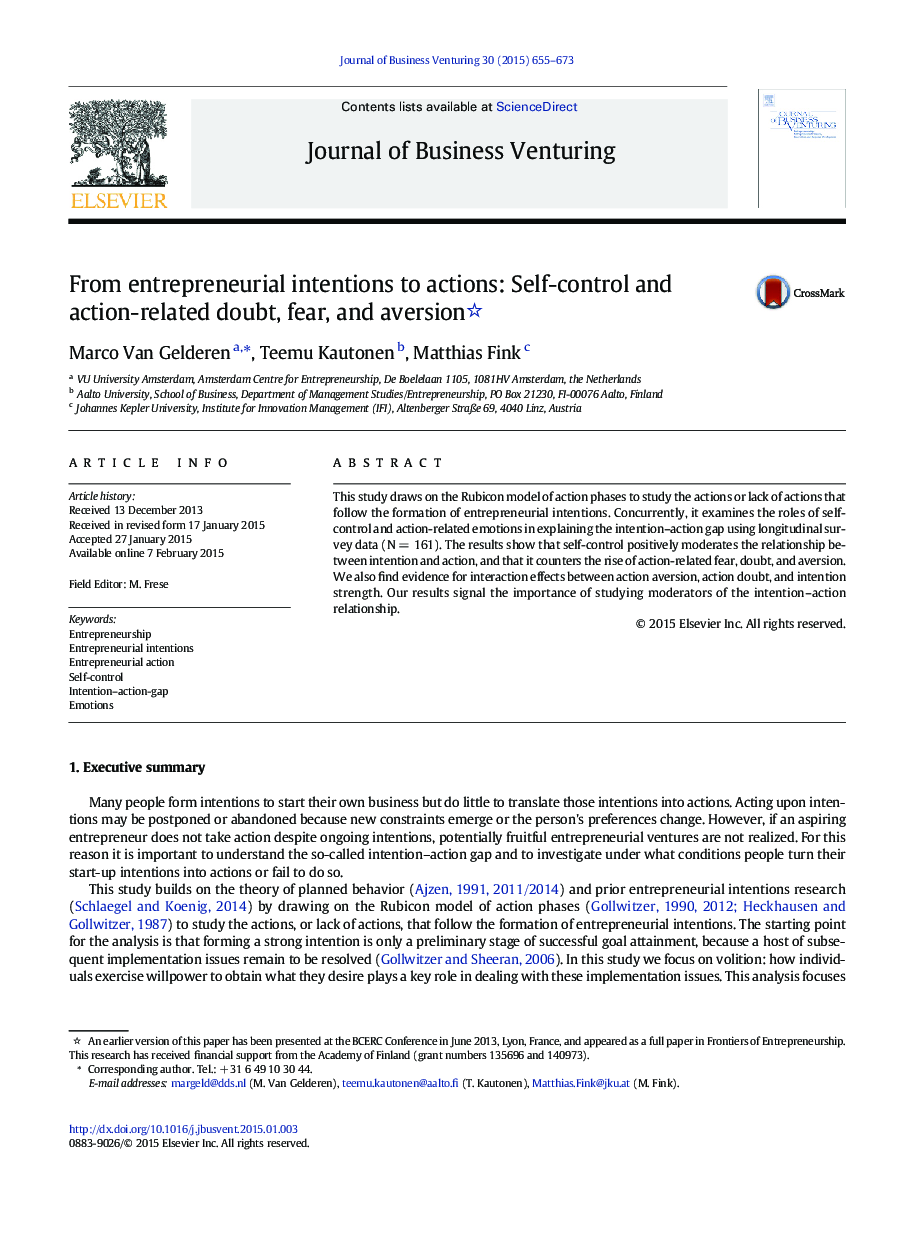| Article ID | Journal | Published Year | Pages | File Type |
|---|---|---|---|---|
| 1019330 | Journal of Business Venturing | 2015 | 19 Pages |
•We model the interplay of entrepreneurial intentions, emotions, and self-control.•We do so following a sample of the working population over a one year period.•Self-control is very important for bringing entrepreneurial intentions to fruition.•We find diverse roles for the avoidance-oriented action-level emotions.
This study draws on the Rubicon model of action phases to study the actions or lack of actions that follow the formation of entrepreneurial intentions. Concurrently, it examines the roles of self-control and action-related emotions in explaining the intention–action gap using longitudinal survey data (N = 161). The results show that self-control positively moderates the relationship between intention and action, and that it counters the rise of action-related fear, doubt, and aversion. We also find evidence for interaction effects between action aversion, action doubt, and intention strength. Our results signal the importance of studying moderators of the intention–action relationship.
